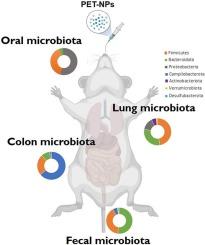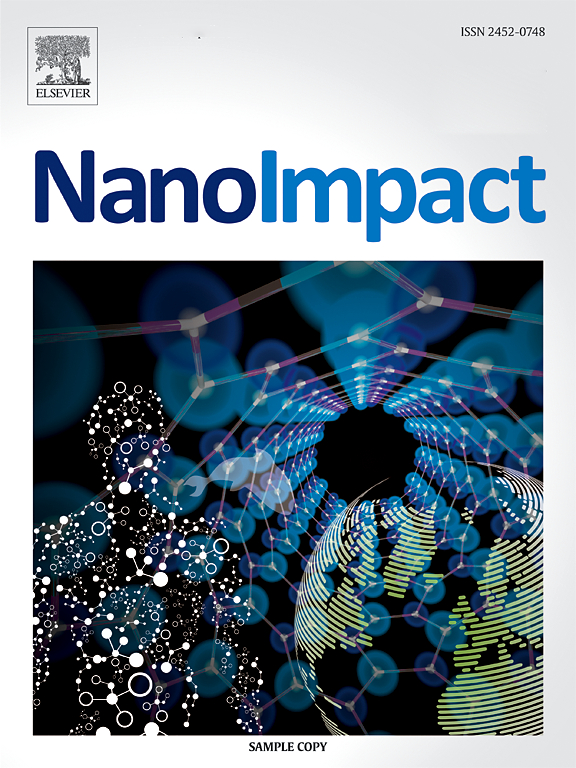暴露于纳米塑料的小鼠肠肺微生物群动态。
IF 5.5
3区 环境科学与生态学
Q2 ENVIRONMENTAL SCIENCES
引用次数: 0
摘要
人们越来越关注接触微塑料和纳米塑料(M/NPs)对健康的潜在影响。由于微塑料和纳米塑料在维护健康方面起着至关重要的作用,人们对了解它们对动物和人类微生物群的影响产生了浓厚的兴趣,这一领域的研究也在迅速发展。我们进行了一项亚慢性暴露研究,将 12 只雄性小鼠分为两组:对照组(n = 6)和 PET-NPs 暴露组(n = 6)。PET-NPs 以 0.5 毫克/天(0.1 毫升/只)的剂量通过口腔灌胃给药,每天给药 28 天。使用 16S rRNA 测序对肺部、结肠、口腔和粪便样本进行微生物群分析。此外,还使用 GC/MS 分析了粪便中的短链脂肪酸。经处理的小鼠粪便和口腔微生物群以及粪便中的脂肪酸水平均未出现明显变化。但是,结肠中的微生物群发生了显著变化,其特点是属于 Veillonella 和 Prevotella 属的革兰氏阴性菌以及氨基酸代谢途径的革兰氏阴性菌数量增加,同时乳酸杆菌数量减少。摄入 PET-NPs 会导致肺部微生物组发生意想不到的变化,假单胞菌增加,微生物能量代谢和氮利用发生变化。这项研究有助于深入了解 PET-NPs 暴露对各种微生物组龛位的不同影响。本文章由计算机程序翻译,如有差异,请以英文原文为准。

Gut-lung microbiota dynamics in mice exposed to Nanoplastics
Concern has grown over potential health effects of micro- and nanoplastics (M/NPs) exposure. There is significant interest in understanding their impact on animal and human microbiota due to its crucial role in preserving health, as research in this area is rapidly advancing. We conducted a sub-chronic exposure study involving 12 male mice, divided into two groups: a control group (n = 6) and a PET-NPs exposure group (n = 6). PET-NPs, administered by oral gavage at a dose of 0.5 mg/day in 0.1 ml/mice, were given daily for 28 days. Microbiota analyses were performed on lung, colon, oral cavity, and stool samples using 16S rRNA sequencing. Additionally, fecal short and medium-chain fatty acids were analyzed by GC/MS. No significant changes were observed in the fecal and oral microbiome of the treated mice, nor in the fecal fatty acid levels. However, there were prominent alterations in the colon, characterized by increased abundance of Gram-negative bacteria belonging to Veillonella and Prevotella genera, and of amino acid metabolism pathways, coupled with a decrease in Lactobacillus. PET-NPs ingestion caused unexpected alterations in the lung microbiome with an increase in the Pseudomonas and changes in microbial energy metabolism and nitrogen utilization. This study provides insights into the differential impact of PET-NPs exposure on various microbiome niches.
求助全文
通过发布文献求助,成功后即可免费获取论文全文。
去求助
来源期刊

NanoImpact
Social Sciences-Safety Research
CiteScore
11.00
自引率
6.10%
发文量
69
审稿时长
23 days
期刊介绍:
NanoImpact is a multidisciplinary journal that focuses on nanosafety research and areas related to the impacts of manufactured nanomaterials on human and environmental systems and the behavior of nanomaterials in these systems.
 求助内容:
求助内容: 应助结果提醒方式:
应助结果提醒方式:


